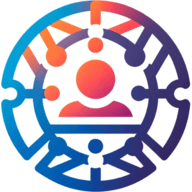6 Storytelling Strategies for Executive Interviews
Imagine standing out in an executive interview by transforming your responses into captivating stories. This article shares six powerful insights, starting with how to illustrate leadership style and resilience and ending with the importance of demonstrating a learning agility and growth mindset. These strategies will not only engage the hiring manager but also convey the depth of your experience and character. Read on to uncover all the essential storytelling techniques that can set you apart in your next executive interview.
- Illustrate Leadership Style and Resilience
- Quantify Results and Outcomes
- Align Story with Company Priorities
- Showcase Adaptability in Complex Situations
- Highlight Emotional Intelligence in Leadership
- Demonstrate Learning Agility and Growth Mindset
Illustrate Leadership Style and Resilience
During an executive interview for a director role, I used storytelling to illustrate my leadership style and resilience, which had been developed over years in high-stakes environments. I shared a pivotal experience from when I was leading a project that involved turning around an underperforming team within a short and high-pressure timeline. The story centered on how I identified each team member's strengths and challenges and then crafted a tailored approach to motivate and empower them. I implemented structured check-ins, clear milestones, and an open feedback loop that helped transform the team from feeling defeated to being highly engaged and productive. This story conveyed my commitment to both people and results, a combination that led to a 30 percent increase in project efficiency, saving the company substantial time and costs.
By choosing this story, I demonstrated not only my strategic mindset but also my ability to foster a collaborative, positive environment under challenging circumstances. The hiring manager saw how my extensive experience in similar scenarios had honed my ability to make swift, impactful decisions while supporting team growth. I could tell they connected with the story because it highlighted qualities essential to the role: vision, empathy, and resilience. It was a narrative that made my qualifications come to life, showing them I could lead through adversity and bring out the best in a team, even in challenging situations.

Quantify Results and Outcomes
When telling your story in an executive interview, the focus should be on impact by quantifying results and outcomes. For example, describe how specific actions led to measurable increases in revenue or efficiency. This approach helps the interviewer understand the concrete benefits you've brought to previous roles.
Numbers and data make your achievements clearer and more compelling. Such details can be more persuasive than vague descriptions of success. Make sure to prepare examples with specific metrics for your next interview to leave a strong impression.
Align Story with Company Priorities
Aligning your story with the company's strategic priorities can significantly boost your chances in an interview. Research the company’s goals and challenges carefully. Tailor your experiences to show how you can help the company achieve its objectives.
When your personal narrative fits seamlessly with the company's vision, it shows that you are a well-suited candidate. This strategy also makes your answers more relevant to the interviewers. Be sure to align your key achievements with the company’s strategy to resonate well during the interview.
Showcase Adaptability in Complex Situations
Showcasing your adaptability in navigating complex situations is crucial during an executive interview. Give examples of times when you had to change strategies or adapt quickly to new information. Explain how this adaptability led to positive outcomes.
Demonstrating this trait shows that you can handle the unexpected and lead through change. Employers value flexibility and the ability to remain effective under pressure. Highlight your adaptability to reassure them of your problem-solving skills.
Highlight Emotional Intelligence in Leadership
In an executive interview, highlighting your emotional intelligence in leading and inspiring teams can set you apart. Discuss situations where your empathy and communication skills made a difference. This could involve resolving conflicts, motivating employees, or fostering a positive work environment.
Emotional intelligence is vital for effective leadership as it helps in building strong, cohesive teams. Interviewers look for leaders who can connect with others and drive collaboration. Make sure to emphasize your emotional intelligence to showcase your leadership strengths.
Demonstrate Learning Agility and Growth Mindset
Demonstrating your learning agility and growth mindset through experiences can leave a mark in an executive interview. Talk about how you have tackled complex projects and learned new skills to achieve success. Mention specific instances where your willingness to learn and grow led to significant accomplishments.
This shows that you are not just resting on past achievements but are continuously seeking to improve. Employers value candidates who are proactive in their professional development. Focus on your learning agility and growth mindset to show your commitment to continuous improvement.

